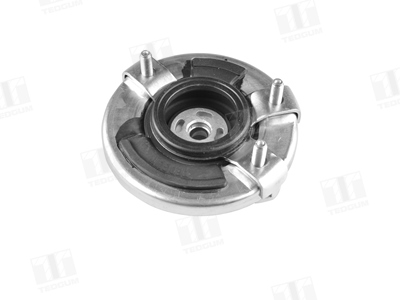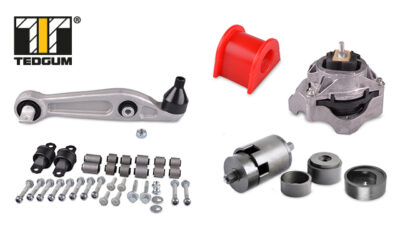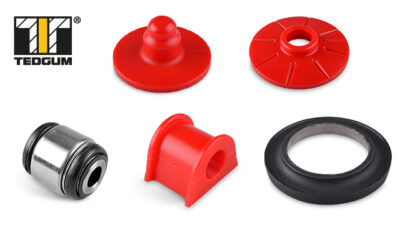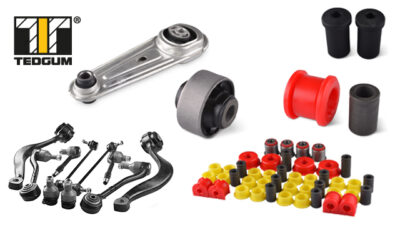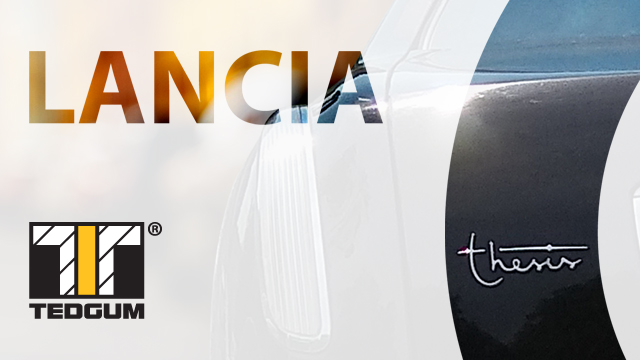
Lancia Thesis is a car that is impossible to pass by indifferently, either admired or viewed with unusual interest. All thanks to the unusual appearance of the car, which was designed by Michael Robinson. Looking at Thesis from the side, we simply see the standard line of a 4-door limousine that is devoid of any sportiness. Nevertheless, the front of the car and its rear seem to be drawn from a different story. At the front, attention is drawn to the diamond-shaped lamps, which are mounted on the convex wheel arches. In addition, there is a large grill between them, which is supposed to refer to old Lancia cars. Another surprise is the rear lights. Two narrow vertical lamps set wide apart, which consist only of red and orange light. Covered with a white lampshade and placed on the wheel arches, they significantly deviate from the trends of the 90s. The width of the rear lamp housing made it impossible to use standard bulbs and for the first time in a series car, full LED rear lighting was used.
Where did the idea for Lancia Thesis come from?
Three years before the appearance of the described model, Lancia Dialogos was presented. Even then, the concept of an extraordinary front and slender rear lamps appeared. Interestingly, the Lancia Dialogos had rear-hinged rear doors, so-called suicidal doors, to emphasize the limousine character of the car, but this idea was not transferred to Thesis. The one more particular model has emerged between the Dialogos and Thesis models. The word “one” is not accidental here because in 2000 exactly one piece of Lancia Giubileo (meaning jubilee) was produced. The name is not accidental, as this copy was produced especially for Pope John Paul II on the occasion of the Great Jubilee of Christianity. This specimen had the look of Lancia Dialogos modified with the use of standard doors in the rear part, the use of an open roof in the rear part and the central location of the Pope’s seat. But let’s go back to Lancia Thesis, who is considered by some to be the last true Lancia.
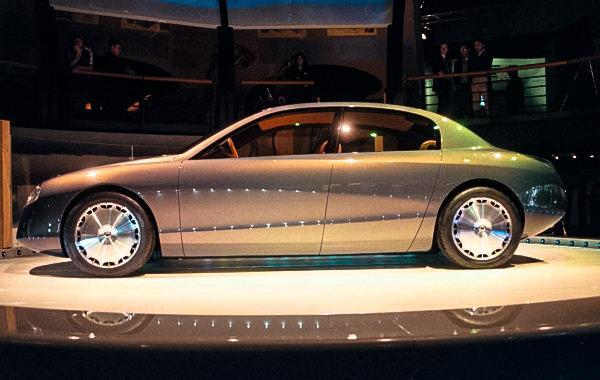
What are the versions of Thesis?
A total of about 16,000 copies of this model were produced, including 9 different versions, including a version for the rental company, which was poorly equipped in comparison with the other versions, as well as 2 different armoured versions.
Thesis was available in two diesel options (both 2.4 liters, 10V or 20V versions) and four gasoline versions, two of which were inline five and two six-cylinder V-engines. The smallest in volume was a 5-cylinder 2.0-liter Soft Turbo engine, which in terms of generated power was the third most powerful Thesis engine. The other gasoline engines are 2.4 R5 20V, 3.0 V6 24V and 3.2 V6 24V.
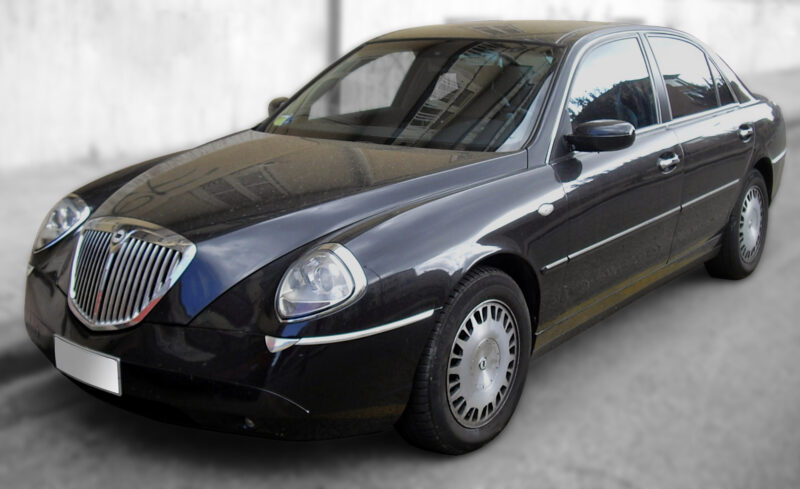
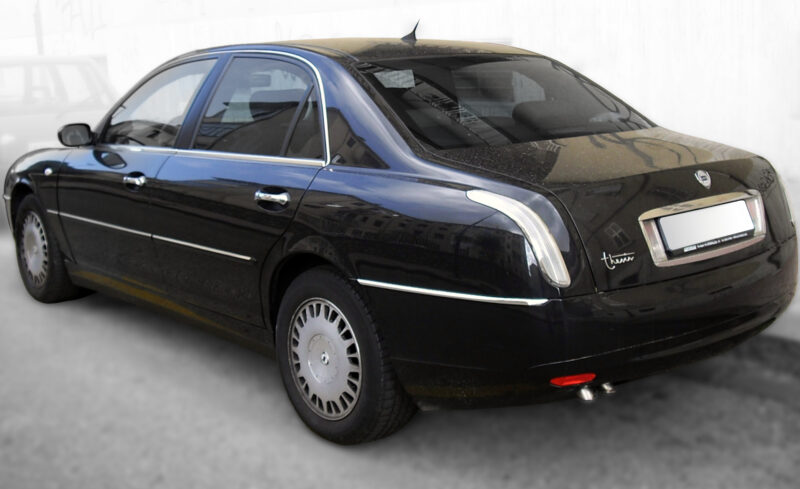
Suspension in Lancia Thesis
As for the Thesis suspension, it was entirely designed for the new Lancia. Contrary to the previous Kappa model, the suspension of which was based on the Alfa Romeo 166. Such an approach to the subject may additionally prove that Thesis was an important car for the Turin-based manufacturer. The result was an elaborate multi-link front and rear suspension system, as well as the semi-active Skyhook damper system, which was also used on the Maserati Spyder. Numerous metal-rubber connections eliminate perfectly the unevenness encountered on the road, but with time their wear requires the replacement of quite a large number of elements. Especially in the case of a car, the weight of which is almost 2 tons, such a suspension is exposed to quite big loads. As in any multi-link suspension, it is important that all elements are replaced at the same time, and after the replacement is completed, it is necessary to adjust the wheels’ alignment.
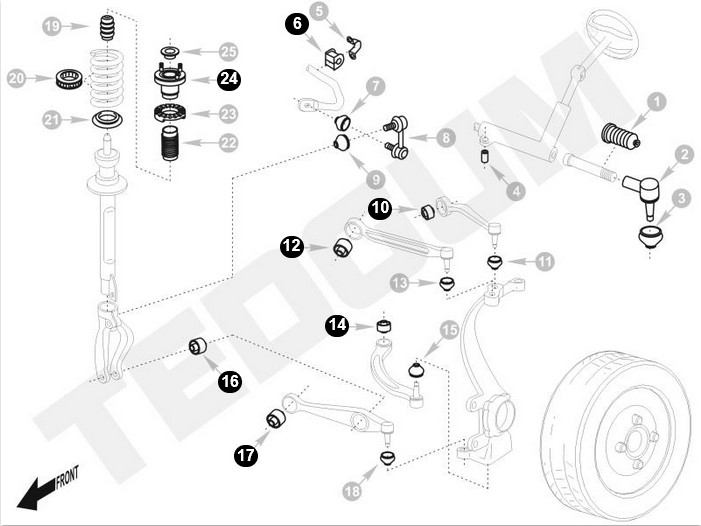
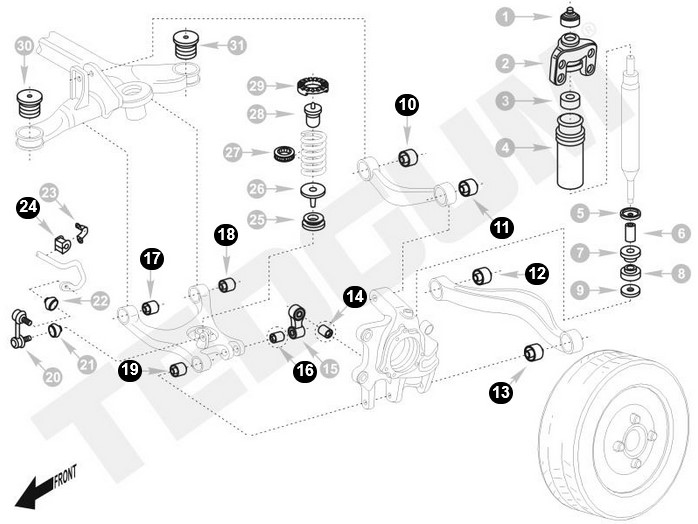
Over time, the front shock mounts also become a problem. It is important that the selected element has the appropriate structure because there are substitutes that, due to their design, make the shock absorber too much rigid.
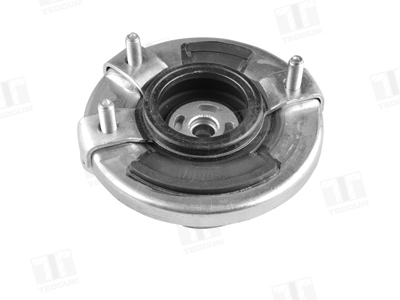
In order to realize even better how the Thesis model was for Lancia, it is enough to mention that these cars were used in door-to-door sales, and the car was delivered to the customer’s home by the seller, and then a control call was made from the management of the given company’s dealer to make sure everything is in order. A replacement car was provided for the time of a possible failure, and Thesis users could use a special free hotline dedicated specifically to this model.
Please see our full Thesis range in our free online catalog.

